
Social Media: The Creative Destruction of Pakistani Politics
Around 400 years ago, Galileo Galilei of Pisa challenged the authority of the Catholic Church through his remarkable new invention: the telescope. Back then, the Church strongly influenced what people believed: that the earth was at the centre of the universe, with all other celestial bodies revolving around it, a phenomenon known as geocentrism. However, using the telescope for his observations, Galileo opposed this assertion, placing the sun rather than the earth at the universe’s centre. Naturally, this heliocentric model challenged the Church’s authority. The telescope marked a significant milestone in disproving the Church’s stance, leading to Galileo’s infamous trial in the Inquisition, where he was charged of heresy. But the damage had already been done. Seeds of doubt had …
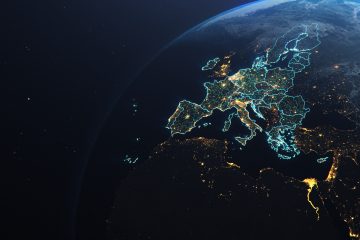
Who governs? When and why governments appoint technocrats?
One of the most critical questions of modern comparative politics is: who governs? The first thing that would come to mind would be party politicians. However, transformations in several European countries’ governmental arena indicate that partisan presence in office, and, more broadly, the general model of party government, characterised by parties’ centrality in representing the needs and demands of citizens, is in decay. Such a decline owes much to the increased government involvement of technocratic personnel – i.e., ministers with no political affiliation. Indeed, while Italy established itself as the promised land of technocracy, currently led by Mario Draghi and by four technocratic prime ministers in the last two decades, technocratic ministers have also entered the last three partisan governments …
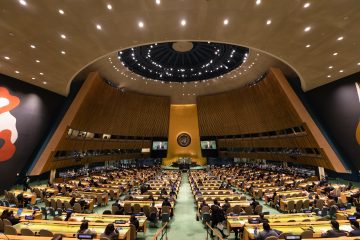
Citizens worldwide want a stronger and more democratic UN: Findings from an international survey by Oxford, LSE, and Griffith researchers
This week, political leaders from countries all over the world are gathering for their annual meeting at the United Nations (UN) in New York. Since its creation and to this day, there have been discussions about reforming the UN. Soon after the UN was founded in 1945, public figures like Albert Einstein called for a much more powerful and democratic UN. Today, leaders such as Ukrainian President Zelensky urge fundamental reforms to strengthen the UN, while NGOs like Democracy Without Borders campaign for making the UN more democratic and representative of citizens. In an international survey in six countries worldwide (Argentina, China, India, Russia, Spain, and the United States), Mathias Koenig-Archibugi (London School of Economics and Political Science), Luis Cabrera …
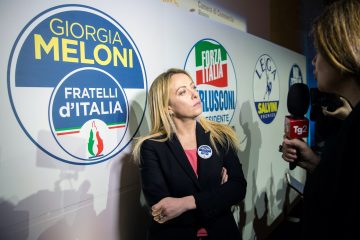
The Italian elections and the threat to European integration
The Italian right, led by the Brothers of Italy, is likely to be in government after the September 2022 elections. Despite its public statements expressing ‘full support’ for the European integration process, Giovanni Capoccia says that there are good reasons to question the exact nature of this commitment Italy heads right Mario Draghi’s successor after the general election in Italy on 25 September will likely be the leader of the right-wing party Fratelli d’Italia (Brothers of Italy), Giorgia Meloni. Currently polling at 23–24% of the vote, the party is the largest member of the centre-right coalition. In this coalition, the ‘right’, which includes the League (Lega, currently 13–14% in the polls), dominates the ‘centre’. The alliance is expected to secure a clear majority of seats …

What is the political, and why should we care?
When political theorists debate the nature of the ‘political’, it strikes the ear as strange. Conventionally, we understand politics in a general sense to mean the practice of power relations, or the relationships between people and governing institutions, or the discursive distribution of power and resources, and although there are often disagreements about the precise definition, there is sufficient overlap that academics understand one another when they talk about politics as a subject of inquiry. However, when talking about ‘the political’, as it is so abstractly articulated in certain areas of the literature, there seems to be far more debate, with supposedly more at stake. ‘The political’ appears to denote some sort of primordial state of things, or an ingredient …
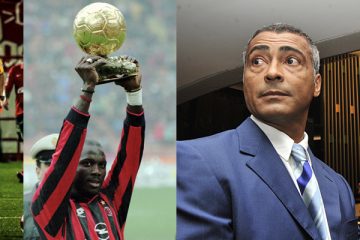
From Scoring Goals to Winning Votes: How Three Footballers Strike Out as Politicians
George Weah’s recent election as President of Liberia is not only noteworthy for being the first peaceful transition of power in the country since 1944. His victory is also “a lesson in how sports fame can help propel figures with humble beginnings to positions of great importance.” Weah is not the only former striker who has transitioned from scoring goals to winning votes. While there is no shortage of lists of former players-turned-politicians, a closer look at three of the game’s most popular players reveals how they have leveraged their fame, wealth and appeal to mount successful populist campaigns. George Weah: President of Liberia Playing for Paris St Germain, AC Milan, Chelsea and Manchester City, George Weah is the first …
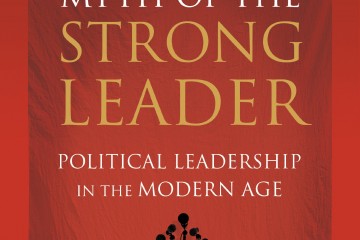
‘The Myth of the Strong Leader’ by Archie Brown
Just under a decade ago, Archie Brown highlighted several factors that he thought limited the explanatory power of comparative politics as an academic discipline. Such factors included undue emphasis on studying democracies at the expense of autocracies, a lack of methodological pluralism, inadequate attention given to understanding political leaders, its separation of domestic and international relations, and its increased isolation from the “real world of politics” that the discipline sought to explain.[1] ‘The Myth of the Strong Leader’ is a book that addresses all of these criticisms demonstrating both erudition on behalf of Brown and a keen ability to practice what he preaches. This book may well be a significant point of reference to political scientists and the general public. …
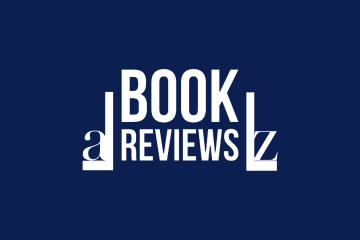
The misguided search for the political – Lois McNay
Max Muir speaks to Lois McNay, Professor of Political Theory at Oxford University and Fellow of Somerville College, about her new book, ‘The Misguided Search for the Political’. She argues that radical democratic theorists, in their search for the abstract essence of politics itself, have ushered in a dangerous silence on the lived experience of inequality and oppression. Without addressing the ‘social weightlessness’ of their theories, these radical democrats find their emancipatory credentials seriously undermined. Max Muir: Hi Lois, thanks for chatting with us. Your new book is called ‘The Misguided Search for the Political’. Why exactly is that search misguided? Lois McNay: The book is a reaction to something we’ve seen over the last twenty or thirty years in …








